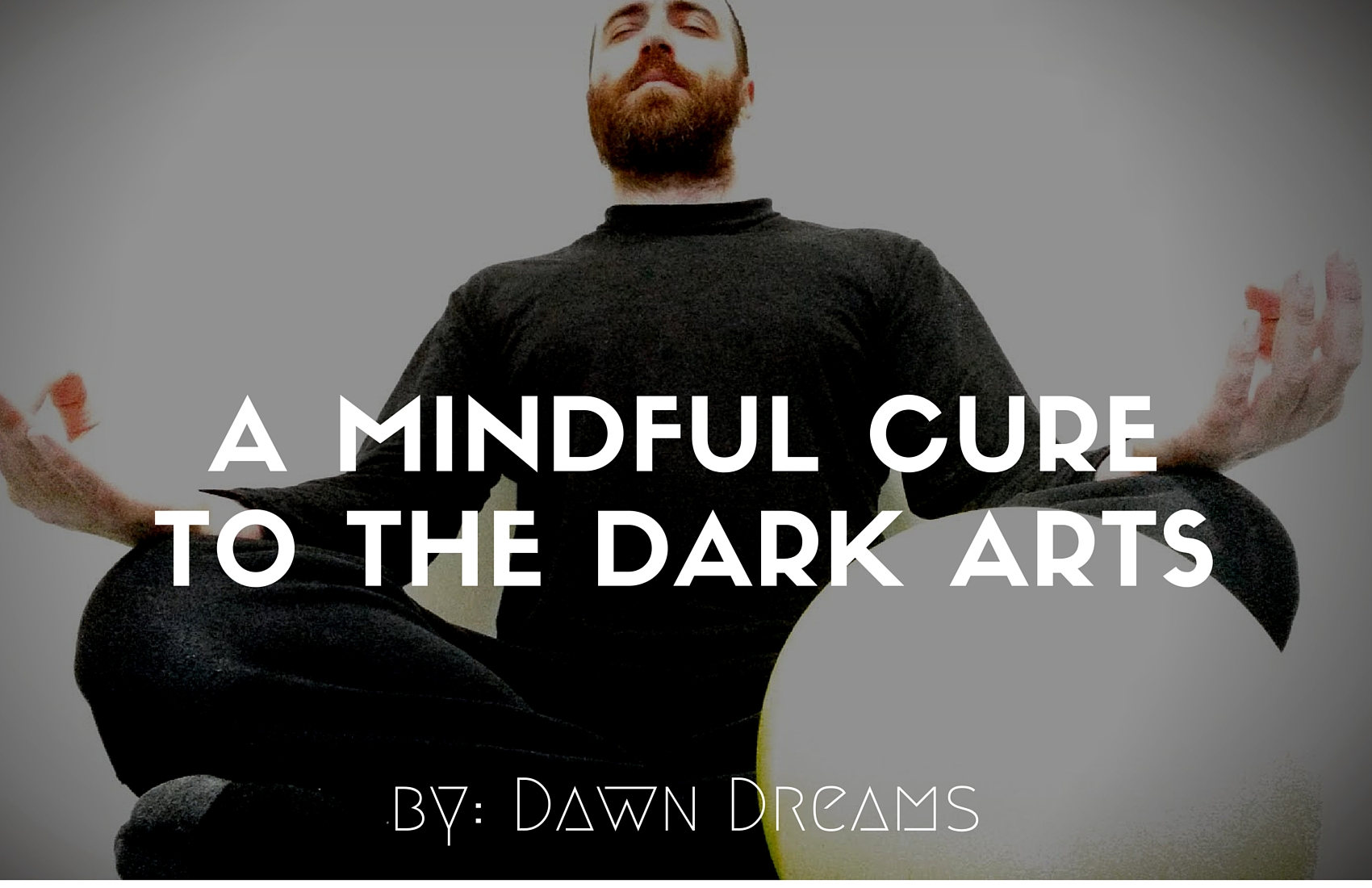Our niche is filled with competition, celebrity worship and an ideal of perfection. Artists can develop a need for attention and a need to be “cool” and accepted by our peers. There is the lofty goal to be the best. There is a sense of trying to catch up to those who have been training since they were children, who have had the privilege of attending circus schools, dance classes and theater training. This can go too far, bringing out our most narcissistic traits. On top of that, we self promote perfected images of ourselves as a products to get on stages, teach or perform.
In practice, striving for the best should not be comparative. To be the best in the world is a narcissistic goal and we should attempt to avoid egoism and turn towards humility. Instead, it should be about finding the best in ourselves. Only then will we have enough self acceptance to be able to show ourselves authentically to the world, fully present and alive.
Doubts actually take you away from the flow state. You cannot be in a “mental state of complete focus, that merges action and awareness, while losing the self-consciousness”[fusion_builder_container hundred_percent=”yes” overflow=”visible”][fusion_builder_row][fusion_builder_column type=”1_1″ background_position=”left top” background_color=”” border_size=”” border_color=”” border_style=”solid” spacing=”yes” background_image=”” background_repeat=”no-repeat” padding=”” margin_top=”0px” margin_bottom=”0px” class=”” id=”” animation_type=”” animation_speed=”0.3″ animation_direction=”left” hide_on_mobile=”no” center_content=”no” min_height=”none”][1] if you are thinking about what others think of you. Every perfectionistic fear actually drives us away from the connection to ourselves and the community. Collectively, we should attempt to strive for humility, while still being able to celebrate our accomplishments.
There is a way to redirect these feelings. We can use the Flow Arts as an act of mindful meditation. If you learn to be fully present in your mind and body, your practice will become more focused, you will have better agility, and improve self-discipline. Your stage presence will have more intention and it will help train your mind back to the work when faced with challenging emotions.
Tips for Mindful Practice
Here are a few tips on how to introduce mindfulness into your practice:
- Lie down on the floor. Keeping your eyes open. Pay attention to the sensations of your weight on the floor, feel your breath, feel any emotions run through you, notice what you see, hear or smell. Always attempt to bring your mind back to focusing on one of your senses.
- Your mind will wander. It will start planning, it will consider the past. Notice this and bring it back to what you are currently feeling. If you find this is difficult, state outloud what you see in front of you. “brown wall, wood panel, red curtain, etc” until you’ve regained control of your mind.
- Feel the body. Let it go. Let the floor hold you. Notice tensions. Notice any story your mind tells you about the way you feel. Let it go and return to feeling the body.
- Scan your body from foot to head, then do it again. Feel every part of your body intentionally.
- Stand up slowly. Feel the weight of your feet and hands. Feel gravity pull your body. Look around. Begin to walk and feel your balance. Attempt to walk neutrally, with your mind on relaxing all muscles that are unnecessary in that moment. Consider small adjustments to your posture to find the easiest balance with the least effort.
- Notice distractions from the practice of walking, this can include impatience with the practice itself among many other feelings. Feel it, but don’t think about it. Always bring your mind back to how the body feels. The way the body feels is the base of all of your work and all of your life. Did it change since yesterday?
- After some time passes, begin to look around the room and see outside yourself while you are walking. Notice what is around you. Say it outloud if you need to.
- Now you can begin to work with your prop, but slowly. Pick it up.
- Feel the weight of the prop in your hand. Stand with it for a moment. Notice how it changes your posture or body movement. Notice any muscles you’ve re-engaged. repeat walking with your prop in your hand. Let everything go.
- Make a simple action with the prop. If a 5 year old can’t do it, it’s too complex. Try lifting your arms. Go to the floor. Do a simple throw. Re-feel your body. How did this change how your body feels? Notice this.
- Walk again, resetting after each attempt at a movement. Repeat action. Walk again. Notice any distracting thoughts. Make notes of it, observe them, let them go. Use this practice to witness yourself. Continue to go into practice very slowly.
- If thoughts are intrusive and keep returning, write them down, say them outloud, promise yourself you’ll think about it later. Return to the sensation of your breath, or your body posture, or your feet on the floor and the weight of your prop.
At first, attempt to stay on the floor 5 minutes each session. As this becomes more routine, over a period of time bring it to 10 minutes, eventually going to 20 minutes of mindfulness on the floor, and 20 minutes of mindfulness walking and holding a prop each day.
We all have our ego stage, just as children do. It is something we go through, and something we should forgive ourselves for, but it is certainly not the point to strive towards. Perfection, jealousy, doubts, planning, performing, all this takes away from the practice itself. The purpose of practicing is the practice. It is not the performance, it is not about being the coolest. It is about creating and recreating because creation is an instinct within you. It is about creating the unique vision that you bring to this world, and you cannot do this if you are focused on what others want from you.
Tackling Loneliness
We can get lonely if we are focused on comparison, the wrong types of critique, worrying about how others perceive our work, or feeling left out due to the cult of celebrity. The problem is, when we attempt to perceive our work from the perception of others inwards, we actually stop feeling our body, we stop being authentically ourselves. We worry about judgement and being left behind. Our work becomes more contrived, a facade to impress other people. In the end, we can become detached from our own art because it stops matching our desires.Trying to prove your worth, is a sign of feeling unworthy. We all feel this sometimes, but we can use mindfulness to feel ourselves and discover our own inner worth, side-stepping the issues of getting approval from the outside.
You may believe there is a need to be critical and judgemental of your practice. This is actually limiting you as an artist. Speaking to yourself with shame actually shuts you down as a human. Being vulnerable is the most important piece to connecting to yourself and your audiences. The judgment takes up precious focus that can be used to better your focus and attention when you are in practice. If you really need to, do your critique after practice by writing it down, planning or videotaping your work. Create exercises that will help you improve your lines, and your technique and add mindfulness to them. Or, get a director who can be the outside eye, while you allow yourself to be fully in your own work.
Your attention to detail, your ability to make decisions, your flow, your improv and play, you ability to be relaxed in your body and creativity will increase if you use mindfulness in your practice. Being authentic is by definition allowing people to see you as you are, and it takes more courage than any other activity on stage. To achieve this you need to be able to witness who you actually are in practice. It is a negotiation with the chatterbox mind and every message it has given you for your whole life. Things will become clearer with this practice.
Mindfulness will help you heal the wounds inflicted by the dark sides of our world at large. It will give you more peace within your practice. You will have better balance and posture. And, when you perform, you will have learned enough self-discipline in your attention to end distractions while on stage. Most of all you will be more connected to yourself.
[1] *Mihaly Csikszentmihalyi (1990). Flow: The Psychology of Optimal Experience. Harper & Row. ISBN 978-0-06-016253-5.


Comments 1
I feel like this article was written for me. It seriously is timely, perfect, and hits the nail on the head with every single word. I am so impressed. As a fellow writer and content manager for The Spinsterz (formerly hooptricks.org), I applaud you on an article well done. I might print this out and put it on my wall in my office. I needed this so much and I know others did too.